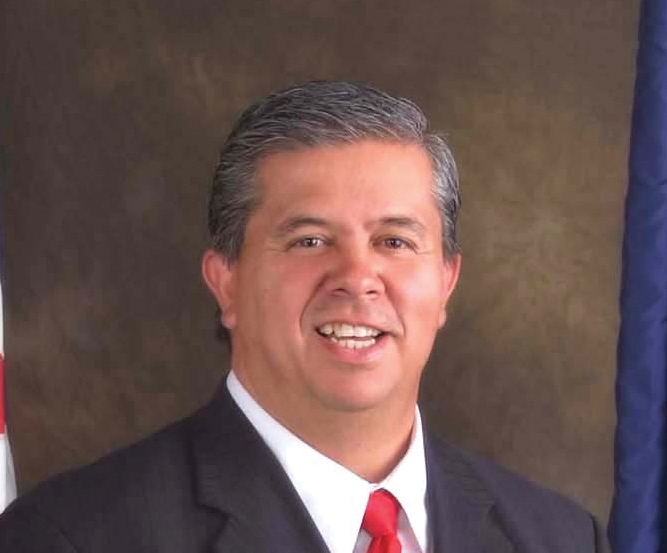The head of a Twin Falls company — the low bidder for a contract to install WiFi in high schools — is perplexed by the state’s rationale for choosing a more expensive company.
Tek-Hut President Nate Bondelid’s team submitted two bids that were less expensive than Nashville, Tenn.-based winning bidder Education Networks of America.
Even though one of Bondelid’s bids came in about $462,000 – or 21.9 percent – cheaper than ENA’s, Tek-Hut only scored modestly better in the cost category. Tek-Hut received 2,381 points out of 2,500 for cost – just 33 points more than ENA.
Typically, Bondelid said his experience bidding for school contracts is that cost – specifically the low bid – is the most important factor in vying for public projects.
In this case, cost was worth one third of the overall score. Technology was worth one third, as was the bidder’s experience and overview.
“We’re taxpayers, we’re not idiots,” said Bondelid, who read about the scoring system Wednesday on Idaho Education News. “We can look at the cost scoring and see this. All it really does is raise more questions.”

On Thursday, Superintendent of Public Instruction Tom Luna defended the weighting and scoring system.
“That’s a standard practice,” Luna said. “We don’t want to end up in a situation where the solution is not a proper solution and that we didn’t have adequate weighting… or you run the risk of being irresponsible with tax dollars.”
Jefferson Jewell, managing director of Xtreme Technologies and one of the nine members of the review committee that scored the WiFi bids, said the formula weighing costs was determined by Education Department officials, before the committee graded the proposals.
Nobody on the committee objected to the scoring criteria, Jewell said.
The committee then scored the business and technology aspects of the bids and considered the proposals as a whole with the financial aspects already scored.
Jewell said the committee made the right decision even though there were less expensive bids.
“It’s significant to note that even if (Tek-Hut) had maxed out the cost points, they couldn’t have bought the contract (because of the other factors being scored),” Jewell said. “In reality, that’s a best practice among public sector procurement and that’s why contracts don’t always go to the low, local bidder.”
Three IT people on the review committee have worked with Tek-Hut before and had a positive experience, a factor that Jewell said speaks to the fairness of the review and scoring process.
“I’m very comfortable that the best company with the best proposal won it,” Jewell said.
Bondelid also said he was curious why his company’s two bids were given different scores for experience – 1394.74 points and 1,223.68.
Jewell said discrepancy came about because Tek-Hut’s bids involved different technological solutions, and the company had differing levels of experience with the two plans.
Finally, Bondelid said he was confused why his company was docked points on a bid question asking companies to open a Boise office if it wins the contract. Bondelid said he made it clear Tek-Hut would open a Boise office within the requested amount of time.
ENA, which has a Boise office, received 10 points for this category; Tek-Hut earned five.
Meanwhile, ENA Vice President of Customer Service Gayle Nelson said she wasn’t surprised her company stood out in the technology and experience categories, where the company ranked first among 10 bids.
“One of the biggest strengths we bring to the table in this project and in other large, statewide projects is our experience doing this on a statewide basis in multiple states,” Nelson said. “In particular, our experience was being a managed service provider, and that is really the model that Idaho was looking for and what we’ve done since the inception of the company.”
ENA was formed in 1996, while Tek-Hut was established in 2001.
ENA serves 5,500 to 5,600 schools across 10 states.
Although ENA has been criticized for being an out-of-state vendor, Nelson said the company’s Boise office is one of its largest and will grow as the WiFi project progresses.
“Most all of our employees in the Boise office were born and raised in Idaho,” Nelson said. “We leverage Idaho subcontractors in big way, and we’re making a huge investment in Idaho that I think everybody should know.”
Catching up
The WiFi chronology — in 10 links:
- July 23: Lawmakers blast multiyear WiFi deal.
- July 24: Amid controversy, state superintendent Tom Luna awards WiFi contract.
- July 24: Education Networks of America’s long list of campaign contributions to Luna, Gov. Butch Otter and more than 40 sitting legislators.
- July 26: In its winning proposal, ENA touts its Idaho experience — and its political ties.
- July 29: Otter sides with WiFi contract critics.
- Aug. 2: Some 200 schools likely to sign on for WiFi service.
- Aug. 2: The Boise School District explains its decision to sign on.
- Aug. 6: State downplays discrepancy in WiFi proposal.
- Aug. 7: Four bidders beat WiFi contractor’s price.
- Aug. 8: WiFi deal: How ENA got the contract.
